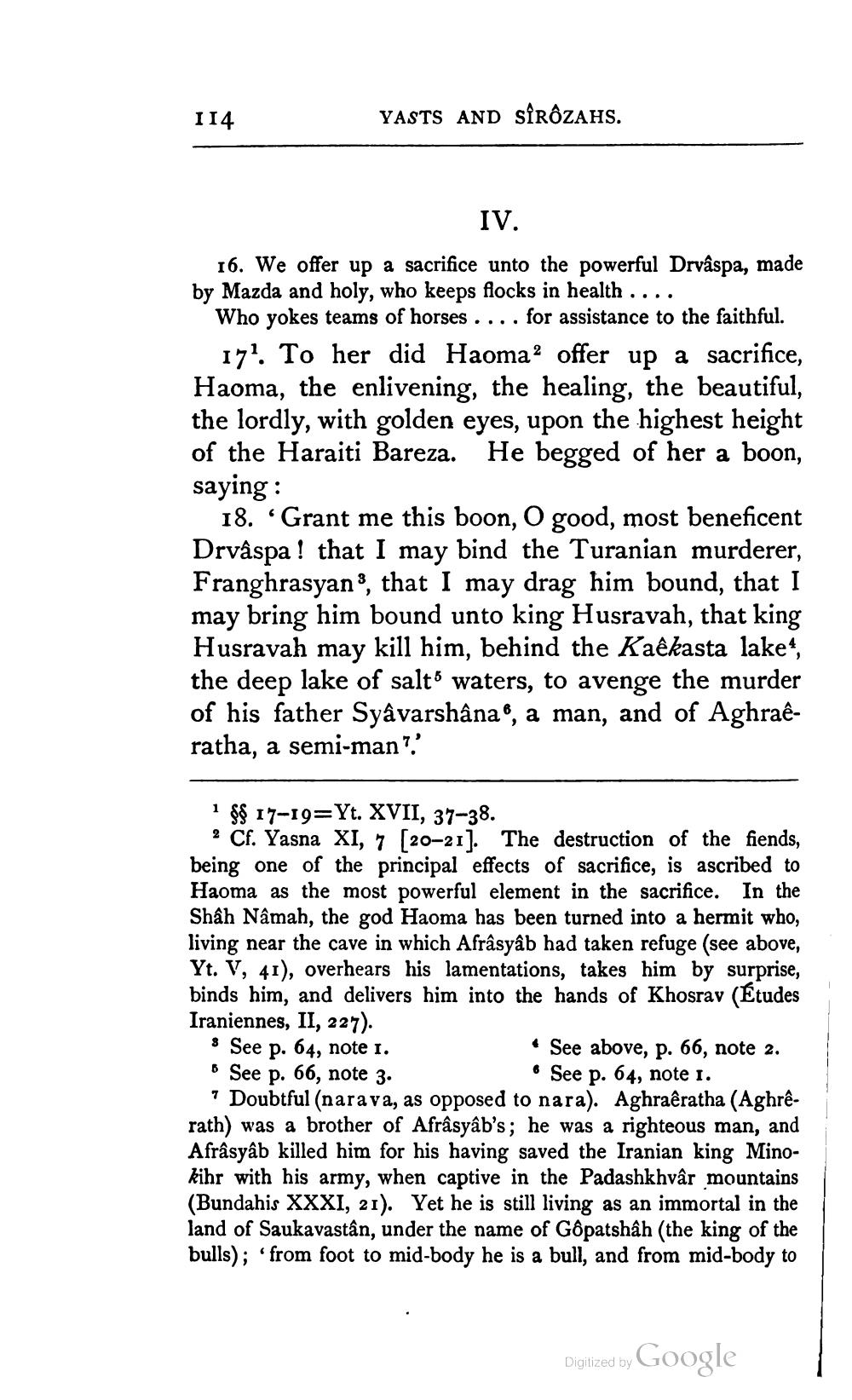________________
114
YASTS AND SÎRÔZAHS.
IV.
16. We offer up a sacrifice unto the powerful Drvâspa, made by Mazda and holy, who keeps flocks in health .... Who yokes teams of horses .... for assistance to the faithful.
17?. To her did Haoma? offer up a sacrifice, Haoma, the enlivening, the healing, the beautiful, the lordly, with golden eyes, upon the highest height of the Haraiti Bareza. He begged of her a boon, saying:
18. Grant me this boon, O good, most beneficent Drvâspa ! that I may bind the Turanian murderer, Franghrasyans, that I may drag him bound, that I may bring him bound unto king Husravah, that king Husravah may kill him, behind the Kaêkasta lake“, the deep lake of salts waters, to avenge the murder of his father Syâvarshanas, a man, and of Aghraêratha, a semi-man?!
1 $17-19=Yt. XVII, 37-38.
? Cf. Yasna XI, 7 [20-21). The destruction of the fiends, being one of the principal effects of sacrifice, is ascribed to Haoma as the most powerful element in the sacrifice. In the Shâh Namah, the god Haoma has been turned into a hermit who, living near the cave in which Afrâsyâb had taken refuge (see above, Yt. V, 41), overhears his lamentations, takes him by surprise, binds him, and delivers him into the hands of Khosrav (Études Iraniennes, II, 227). * See p. 64, note 1.
* See above, p. 66, note 2. 6 See p. 66, note 3.
. See p. 64, note 1. ? Doubtful (narava, as opposed to nara). Aghraêratha (Aghrérath) was a brother of Afrâsyâb's; he was a righteous man, and Afrâsyâb killed him for his having saved the Iranian king Minokihr with his army, when captive in the Padashkhvâr mountains (Bundahis XXXI, 21). Yet he is still living as an immortal in the land of Saukavastân, under the name of Gôpatshâh (the king of the bulls); ‘from foot to mid-body he is a bull, and from mid-body to
Digitized by Google




